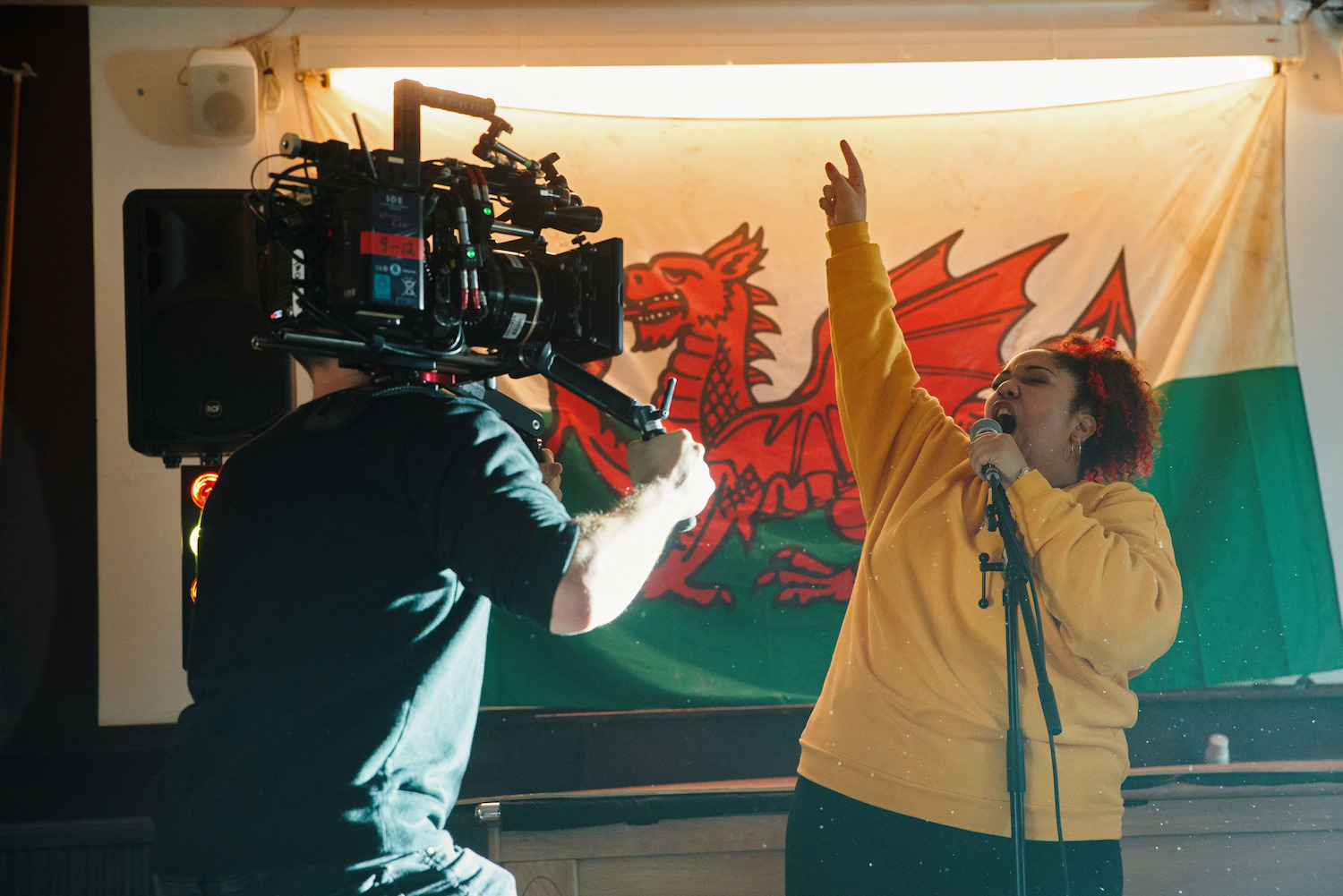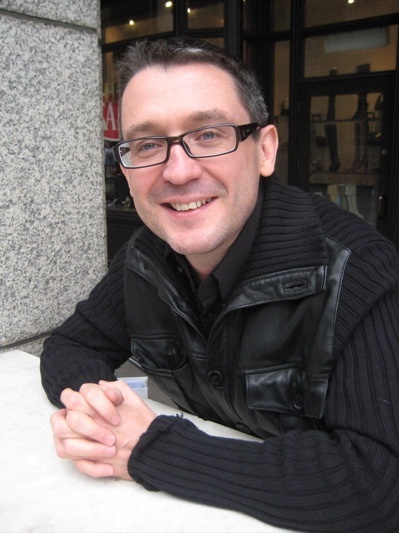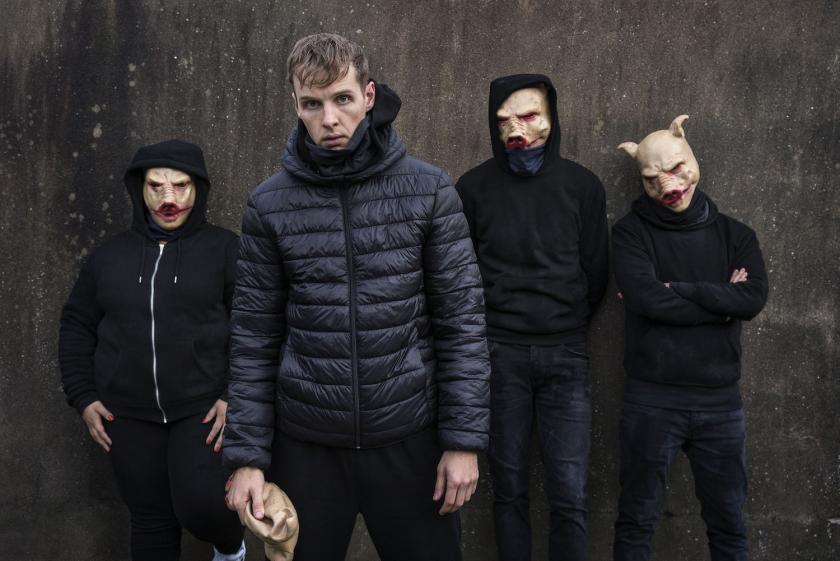The Left Behind is a television drama marinated in real-world research. It tells the story of a young man unable to break free from his bullshit job, zero-hour existence, thrown out of his family home when the council decide that as a single man with no dependents he isn’t a housing priority. He is seduced by a far-right, anti-migrant explanation for his plight and eventually drawn into a sickening hate crime. But very unusually our film takes the perspective of the perpetrator of the hate crime. And this is why we felt we had to hear this side of the story.
Last year we made Killed By My Debt, the low-budget factual drama for BBC Three, the channel which keeps taking bold decisions and creative risks. It was the true story of Jerome Rogers, a young old lad from South London who’d got his dream job working as a motorbike courier for Citysprint. Within a few months he’d got a couple of traffic fines from Camden Council – 65 quid each. But in his bogus self-employed job, some weeks Jerome was earning £12, others he was making a loss. He couldn’t pay the fines and, in the hands of private bailiffs, they went up to more than £1.000. Jerome had no way to pay – and didn’t tell his beautiful family. He took his own life.
And I remember on the night of the film’s release watching the endless Twitter feed… thousands of young working-class people – black, brown, white, mixed-race – so many of them with a story tell about subsistence debt, the organised-gang tactics of bailiffs, bogus self-employment. And I remember Clare Sillery, one of the film’s commissioners, saying, “We’ve plugged into the mains.” And maybe we had. The story ended up reaching more than 11 million people.
Afterwards, talking with Aysha Rafaele, the award-winning executive producer of Killed By My Debt and other Murdered By films, it came clear to us the film had resonated because it was about an aspect of working-class experience which hadn’t made it onto our screens before. We wondered about what else was going on under the radar of our television culture. Aysha’s committed development team – Marco Crivellari, Jade Taylor, Paul Bignell – started to research where and what form the far right was growing in and came up with some alarming stats. I had also been thinking for a while about the democratic crisis of confidence: the feeling that seemed to be brewing among ordinary people (and rife in my own family) that it made no difference who they elected – because the state simply isn’t set up to represent working-class people anymore. (Pictured below: Jalisa Andrews on set) We started from the simple truth that there aren’t many English Defence League groups in Hampstead or Richmond upon Thames. As we bored down into it, it became clear that support for far-right groups is concentrated in Britain’s post-industrial left-behind communities. We discovered Loud and Proud, Hilary Pilkington’s seminal study of an English Defence League group. Professor Pilkington had embedded herself with an EDL group for three years – and discovered that about 75 percent of them were either out of work or in the gig economy. Every time one young lad went for a driving or warehouse job he had to compete with his own mum and dad, who themselves had never had proper jobs. Almost everyone was in some kind of housing crisis and many said they had watched migrants being given priority for social housing over them. There was an LGBT section, a mixed-race girl and a number of Sikhs. No one in the group believed they were racists but almost all thought that Islam was undermining our way of life, and was somehow the key to the situation they found themselves in. They said over and over again that they were “second-class citizens”.
We started from the simple truth that there aren’t many English Defence League groups in Hampstead or Richmond upon Thames. As we bored down into it, it became clear that support for far-right groups is concentrated in Britain’s post-industrial left-behind communities. We discovered Loud and Proud, Hilary Pilkington’s seminal study of an English Defence League group. Professor Pilkington had embedded herself with an EDL group for three years – and discovered that about 75 percent of them were either out of work or in the gig economy. Every time one young lad went for a driving or warehouse job he had to compete with his own mum and dad, who themselves had never had proper jobs. Almost everyone was in some kind of housing crisis and many said they had watched migrants being given priority for social housing over them. There was an LGBT section, a mixed-race girl and a number of Sikhs. No one in the group believed they were racists but almost all thought that Islam was undermining our way of life, and was somehow the key to the situation they found themselves in. They said over and over again that they were “second-class citizens”.
Their views weren’t so different from those of their friends and neighbours. The vast majority of people in Forgotten Britain are warm-hearted, kind people, who love their kids and try to get by in an economy that has come to treat them as units of disposable labour. The vast majority don’t hate anyone… But a growing minority are turning to a desperate, desperately mistaken way of decoding what has happened to them: instead of blaming successive governments for allowing the casualisation of work and the elimination of public housing, they’re scapegoating migrants and Muslims. In a massively complex, obfuscated world this simple explanation seems to chime with their real-world experiences of downward wage pressure and public housing shortages. Structural poverty and a sense of hopelessness have become fertile feeding grounds for the far right.
We met Hilary Pilkington and she told us about “the politics of silencing” – the way in which our political culture actively excludes people with unacceptable views, the no platforming, the loss of jobs, the college expulsions, the social media removals. (Pictured below: Joseph Bullman)
 But it isn’t working. The far right is gaining strength. Hate crime is on the rise. A small, misguided, growing minority have become desperate enough to turn to desperate solutions and they are dragging our mainstream politics towards enmity and chaos. According to recent academic measurements Britain is now only a little bit less unequal than Ancient Rome. The grassroots far right has reached the wrong conclusions about why they are in the situation in which they find themselves, but freezing them out and humiliating them still further is only accelerating our descent into anarchy.
But it isn’t working. The far right is gaining strength. Hate crime is on the rise. A small, misguided, growing minority have become desperate enough to turn to desperate solutions and they are dragging our mainstream politics towards enmity and chaos. According to recent academic measurements Britain is now only a little bit less unequal than Ancient Rome. The grassroots far right has reached the wrong conclusions about why they are in the situation in which they find themselves, but freezing them out and humiliating them still further is only accelerating our descent into anarchy.
So we made a film written by the Welsh working-class playwright Alan Harris and some of the best young actors in Britain today (Sion Daniel Young, Aimee Ffion Edwards, Amy-Leigh Hickman). It might not be everyone’s cup of tea but which we’re proud to have had the chance to make it.
And we have a choice. We can either go on excluding/humiliating/impoverishing these people while we watch them become more alienated, angrier and more open to the politics of desperation, or we can start listening and talking to people who don’t share our values. And we can start treating them like humans.
If as a country we decided to support policies which gave the people of Left Behind Britain decent jobs and homes, gave them back a narrative to their lives, then I think people would start to focus on doing up their houses and flats, on going on holiday, on starting families, on getting off with girls and boys, on getting their gardens straight, on loving their kids. And maybe this far right phenomenon would shrink back down to almost nothing, and the whole country would start to look a bit saner. Maybe it’s worth a try.
- The Left Behind is on BBC Three at 9pm on 10 July then on the BBC iPlayer
- More First Person Articles on theartsdesk















Add comment